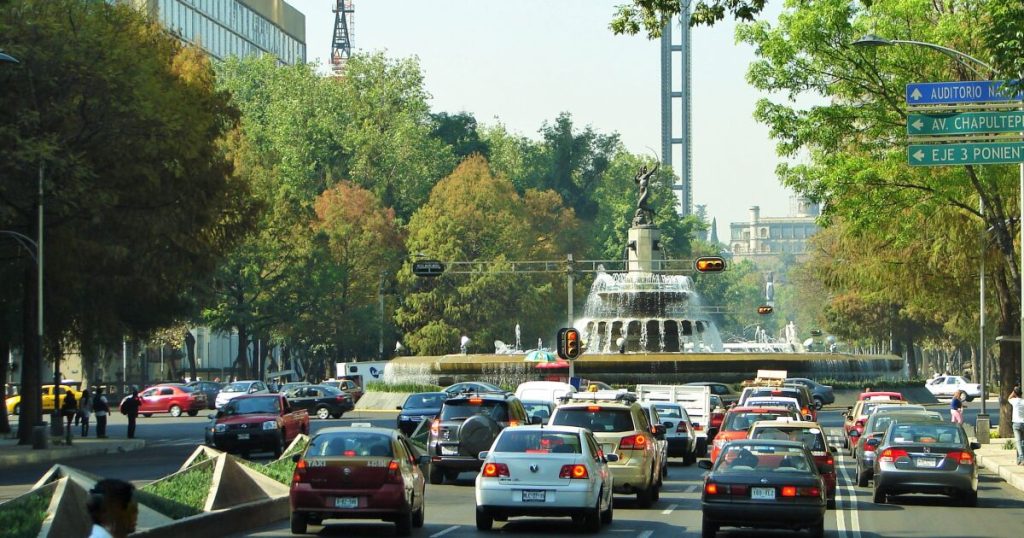USA has imposed duty to almost all countries on the argument that they are taking advantage of it. However, this is not true, says the economist Felipe Morriswho explains why a policy like this is not beneficial for anyone.
USA has legitimized its tariff policy to an alleged commercial disadvantage. Is a negative trade balance necessarily sign of abuse by other countries?
The United States is applying a commercial protectionist policy based on the opinion that its commercial deficit is due to other countries with the opportunity of it. This is not true. When a country buys more than it sells to the rest of the world, it is simply registering a current account deficit, which does not necessarily mean that it is losing, because that excess of purchases is financed with money that enters through other roads – in the financial or capital account of the balance of payments -, as foreign investment or abroad loans, compensating that imbalance.
So isn’t a trade deficit negative in itself?
Correct. Commercial deficits allow the country to benefit from access to cheapest goods and use its resources to produce goods with greater added value, such as technology, sophisticated equipment, medicines and services such as software and others. The mere fact of having a commercial deficit is not a sign of exploitation or economic weakness. In addition, it is impossible for all countries to have commercial surpluses.
Are tariffs the most appropriate mechanism to reduce or eliminate commercial deficits?
Commercial deficits do not originate in commercial policies, but in imbalances between the savings and investment rates of the countries. If the objective is to eliminate the commercial deficit, then national savings must be increased, reduce investment or fiscal deficit. The US commercial deficits are compensated with surpluses in capital accounts, which translate into foreign investment in entrepreneurship, bonds and shares, as well as in low -cost financing of their public and private debt.
What are the main effects of a protectionist policy on the global economy and that of Peru?
There is innumerable empirical and theoretical evidence that shows the damages of protectionism about the economy, showing how they tend to reduce commercial flows affecting global growth, generating inefficiencies, welfare losses and regressive distributive effects. In the case of Peru, the impact can come due to a reduction of certain exports to the US, mainly textile, certain agroindustrial and even mineral products. Export prices could also fall if global growth is reduced, affecting our own growth. The World Bank estimates that a 1% reduction in the growth of larger economies reduces our growth by 0.7%.
Some argue that US tariff policy could benefit us by putting us in advantage over other countries with higher tariffs. How true is this idea and what would be the net effect considering all the impacts?
It is very premature to comment in one sense or another. In my opinion there are no winners in a commercial war.
If the market assigns resources more efficiently and is not a physical place, what impact does tariffs have to force companies to produce in the United States?
Imposing tariffs to force local production can be risky, since it generates industries that are only competitive because they are protected, generating inefficiencies, discouraging innovation and more expensive products to the population. We have lived it in Latin America with the import substitution policy promoted by ECLAC, which ended up being a failure.
Could recent protectionist policies generate conditions for stagflation?
The most reputed economists in the world agree that the protectionist policies of the American government will cause recession or stagflation in both the US and in the global economy if they are not reversed. We all understand what is recession, but not “stagflation”, which reflects an economic situation where two problems coexists: economic recession – as low or no growth of GDP and high unemployment – and high inflation. This hinders the application of effective economic policies.
How harmful can it be a stagflation?
If a commercial war is unleashed, global trade would affect, braking the world economy. It could generate stagflation or recession, but in both cases commercial flows would be reduced, economies would contain and employment would be directly or indirectly affected. This would happen globally and unfailingly affect us. Both a recession and a stagflation would be very harmful.
The uncertainty generated by tariffs has hit the stock markets. Can commercial restrictions trigger a financial crisis?
A financial crisis would be the extreme of this commercial war and could be generated if confidence in the dollar and the ability of the American government to honor its debts are lost. The following moves of the American government and the reaction of the long -term bond market will have to be followed closely, which is the one that determines the appetite of investors for the American public debt. At the moment there is a lot of uncertainty and volatility in the markets.
Are there reasons to minimize the potential impacts of US tariff policy?
No. Those who defend this policy are people with few knowledge of economics who think with little solid arguments, minimizing its harmful effects on trade and economic growth.
Take advantage of the new experience, receive by WhatsApp our enriched digital newspaper. Peru21 Epaper.
Now available in Yape! Find us in Yape Promos.
Recommended video

















